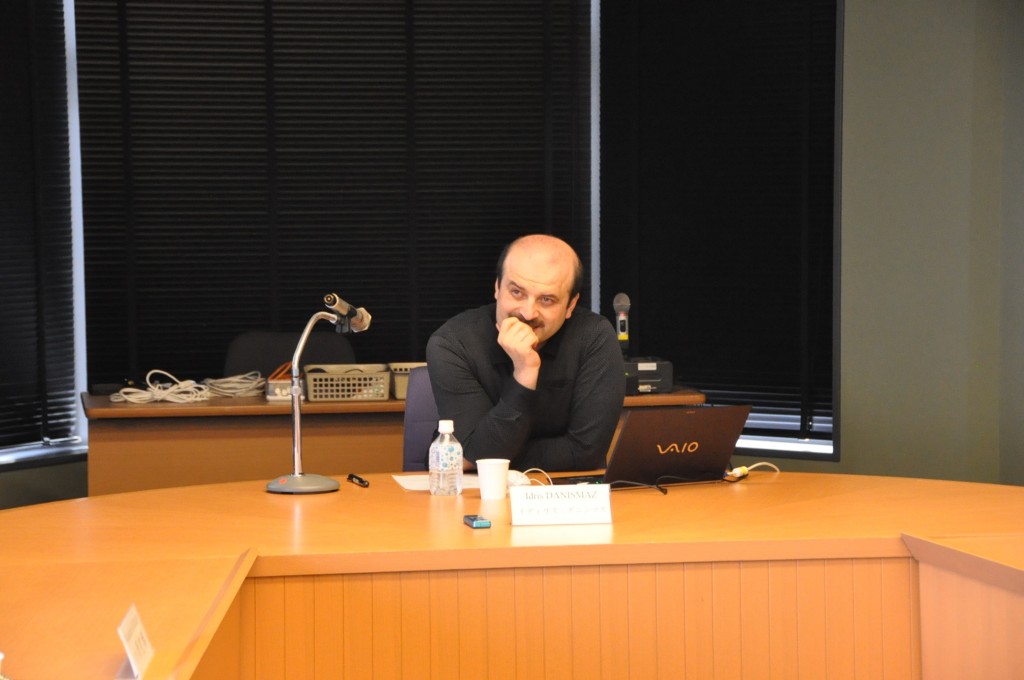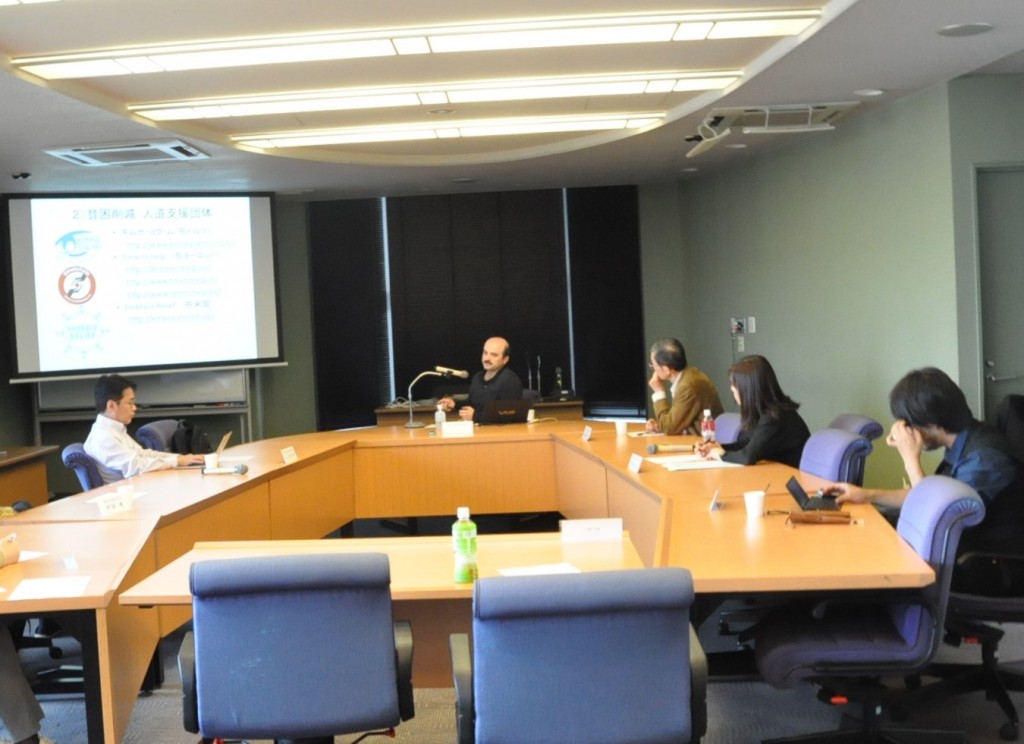Center for Interdisciplinary Study of Monotheistic Religions(CISMOR)Doshisha University
> Past Research Activities > Transforming Moral Values to Social Value: Altruistic Activism of Faith-Based Civil Society Organizations in TurkeyPast Research Activities
Study meeting 2014
Transforming Moral Values to Social Value: Altruistic Activism of Faith-Based Civil Society Organizations in Turkey
| Date: |
2014/10/11 14:00-17:00 |
|---|---|
| Place: | Kambai-kan Conference room |
| Speaker: |
|
| Summary: | |
|
Dr. Danismaz presented on the Hizmet movement, the largest civil society movement in Turkey, while discussing its subordinate organization, known as Kimse Yok Mu. Dr.Danismaz began by explaining the history of the Gülen movement, which is currently active throughout the world, and how Kimse Yok Mu is a humanitarian organization. Due to the fall of the Ottoman Empire and the establishment of the Republic of Turkey, secularism was introduced and a political situation emerged in which religions were placed under the management of a secular state. Based on this, the country experienced rapid political and cultural changes associated with the influx of Western civilization. The establishment of the Republic of Turkey as a secular state resulted in people ruled not by the laws of God (Sharia), but of humans. This led to a crisis of existence for the traditional culture and education that was previously supported by Islam-based rule. In the new framework of the Republic of Turkey, citizens were driven by a need to interpret and pass on Islamic tradition as the religion of the people. Fethullah Gülen was influenced by Islamic reformist intellectual Said Nursi’s Letters of Divine Light, and presented a modern interpretation of Nursi. The movement he led was also known as “the Hizmet (service) movement” because its goal was to present God’s loving forgiveness to people; it is currently the largest Islamic civil society movement in Turkey. The Hizmet movement has a wide influence through charity projects, lobbying groups, students groups, radio, television, and newspapers. Its regional groups each engage in activities for their project bases (as opposed to a centralized management system), which allows it to be flexible. The humanitarian support group Kimse Yok Mu engages in activities throughout the world, from supporting Syrian refugees to setting up soup kitchens in areas that were affected by the Great East Japan Earthquake. However, the Hizmet movement is facing a crisis in the political arena. Of the previous Islamic political parties in Turkey, many have been dissolved either by an order or a military coup d'état. When this occurs, they form new political parties. Due to the corruption and ethical deterioration of secularist parties, the Islamic AKP has taken power. In the past, the Hizmet movement has intermittently cooperated with these Islamic political administrations. Danismaz argued that while the Hizmet movement responds to the societal crisis supported by religious tradition, the Islamic political movement is responding to the loss of Islam’s ruling authority since the fall of the Ottoman Empire. Therefore, their goals are different. According to his analysis, the Islamic politico-societal movement is currently losing power because of their criticisms of the current administration’s policies where they are ridiculed as “a new Ottomanism” and can be viewed as imperialistic, setbacks to a zero-problem diplomacy, and wide-scale corruption issues. In response, the Hizmet movement is an opposing or competing civil movement that has supported police officers and prosecutors who have exposed corruption, as well as sought freedom of thought and expression, transparency, and a strengthened democracy. This has led to a clash between the AKP administration and Hizmet. Danismaz also pointed out the recent oppression of the Hizmet movement, with subordinate organization Kimse Yok Mu ordered to cease its activities. Following the lecture, an audience member pointed out the movement’s double standard: while it supports democracy, it has also been strongly connected with authoritarian regimes in Central Asia. The person questioned why it spoke up about domestic corruption, despite these connections. Danismaz responded that the movement emphasized serving members of the international community through humanitarian and educational support, and is active in various countries and does not interfere in local government administrative systems and domestic politics when doing so. This strategy is the reason that if a country’s system or government changes, it has been able to continue to work in such countries. For example, the movement was active in Afghanistan in the 1990s and expanded when the Taliban was in power during the U.S. invasion, as well as during the Karzai Administration. Today, it continues to be active without any major issues. The educational facilities run by the movement exist in the capital city of Kabul and other cities ruled by the Taliban. There are cases where in order to provide support to people in difficult situations, it must receive permission from an area’s rulers, who may have been democratically elected or acquired power through another method. Even if those in power have authoritarian tendencies, the movement is forced to engage in dialogue with them to provide support. However, it is not necessarily appropriate to view the movement as strongly connected with specific ruling powers or linked to authoritarian powers. |
|
|
Program |
|

